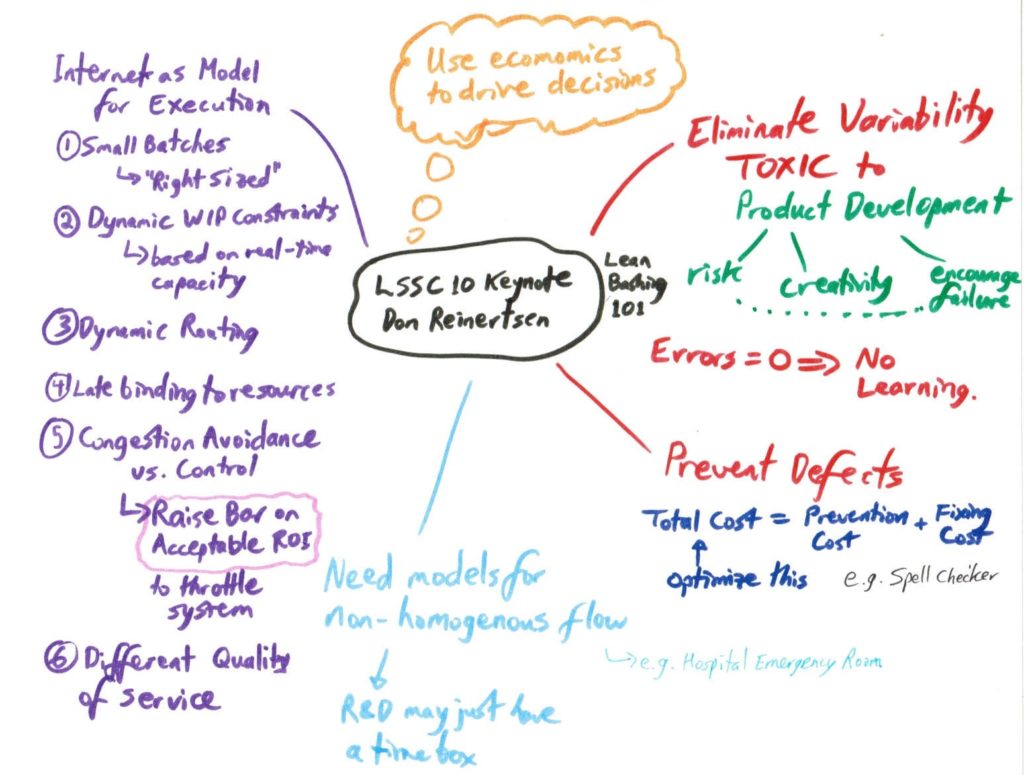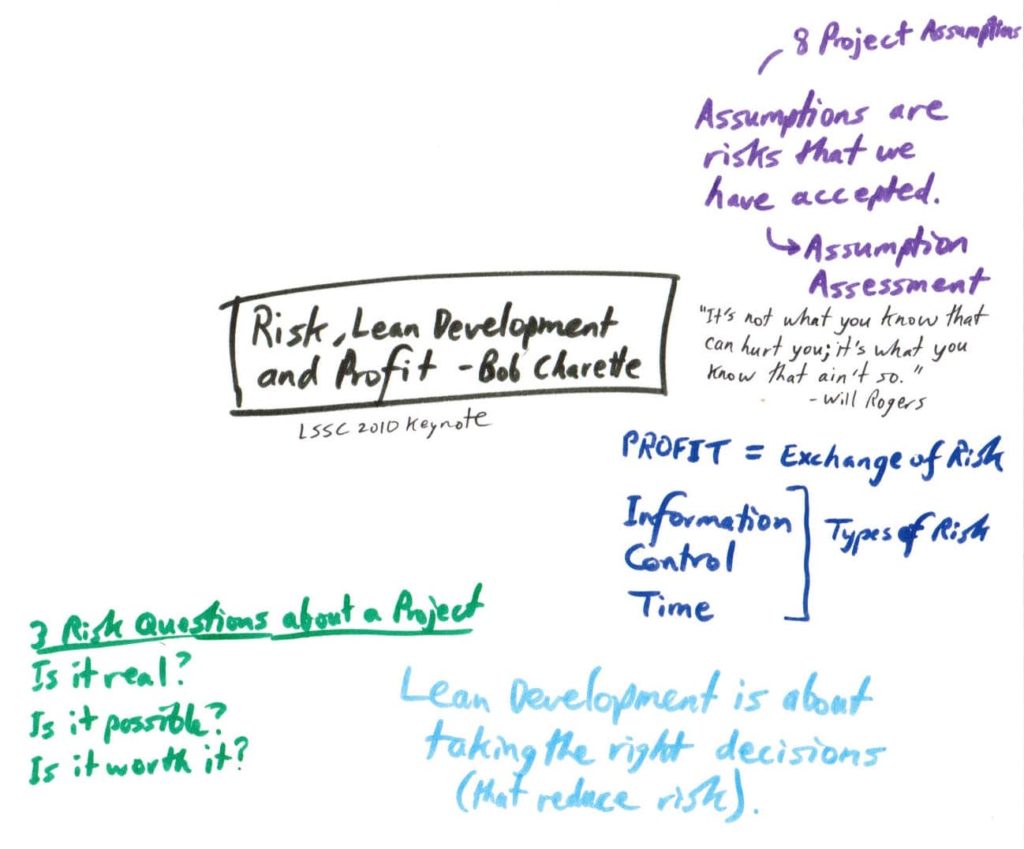Sadly, I did not do as good a job capturing the the LSSC10 keynote sessions as I would have liked, but maybe I captured something you missed…
Don Reinertsen really turned me off at the start of his session (The Easy Road to FLOW Goes through a Town named LEAN) which started with what felt like Kanban bashing 101. Many of his comments seemed aimed at a literal implementation of a production-like Kanban system in software – something I have not seen in practice. Despite this misdirection, there were some very strong points that I would like to highlight. See video/slides on InfoQ.
Elimination of Variability is Toxic. Great Product Development requires creativity, taking risks and encouraging failure. No errors means no learning. This reminds me of Jared Spool’s Keynote on building great products and aligns with efforts such as Enough Kanban! Use XP for Single-piece flow.

Don also introduced the Internet (TCP/IP stack) as a very different model for work execution. Again, I was a little disappointed since a lot of teams are already implementing similar elements. e.g. Different quality of service through urgent tracks in Kanban boards. A number of people said the talk was a quick synopsis of his new book: The Principles of Product Development Flow: Second Generation Lean Product Development and contains ideas that will shape lean software for the next five years. These are smart people so I am going to have to get the book.
Risk, Lean Development and Profit
The second keynote was by Bob Charette. I love the quote he shared with us about assumptions and risk:
“It’s not what you know that can hurt you; it’s what you know that ain’t so” – Will Rogers
I am reminded of the damage assumptions can bring every time I train people with my Scrum-friendly version of the XPGame. Bob points out that assumptions are risks we have accepted.

Profit = Exchange of Risk. There are three types of risk:
- Information
- Control
- Time
We need to choose between these to maximize profit
Related Posts
Check out blog post: Above All, Stay Open to New Ideas, Humble to the Current Limits of Our Knowledge, and Be Ready to Innovate, Absorbing Ideas from Other Bodies of Knowledge


